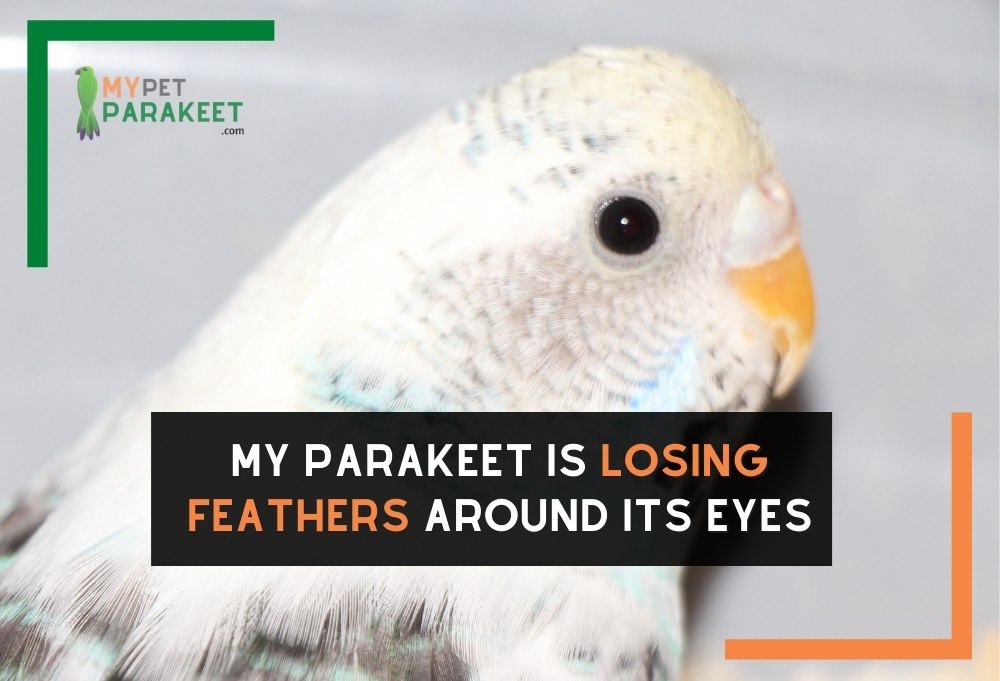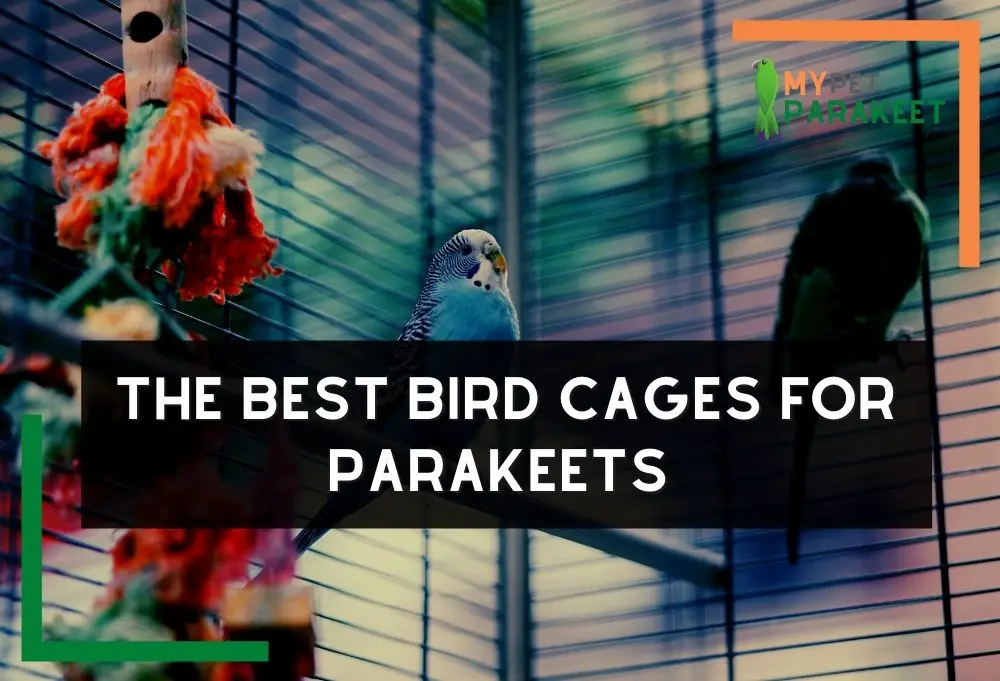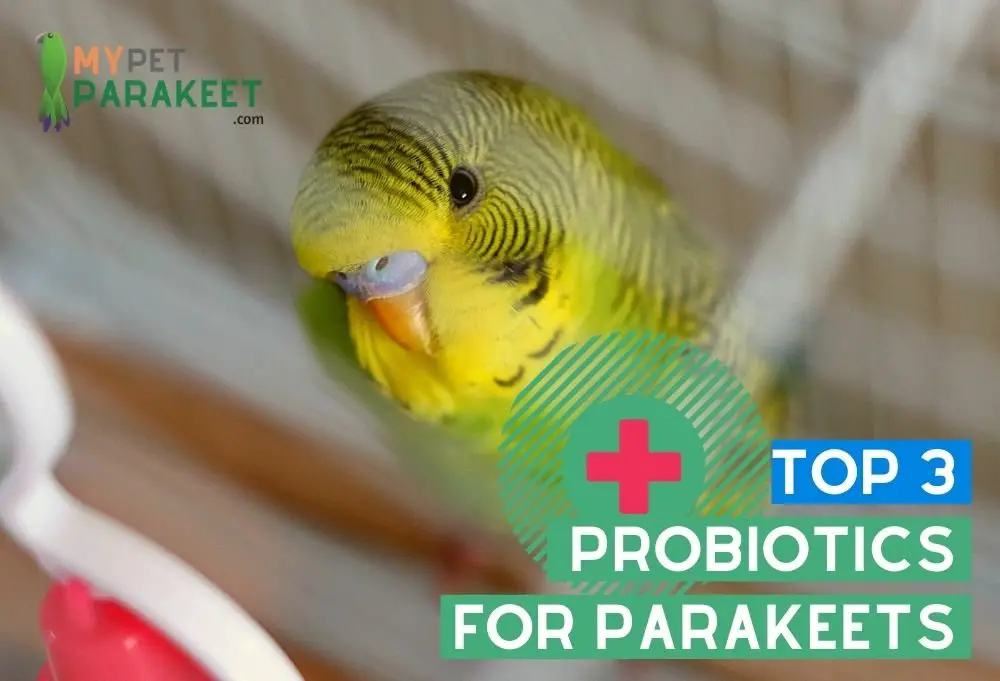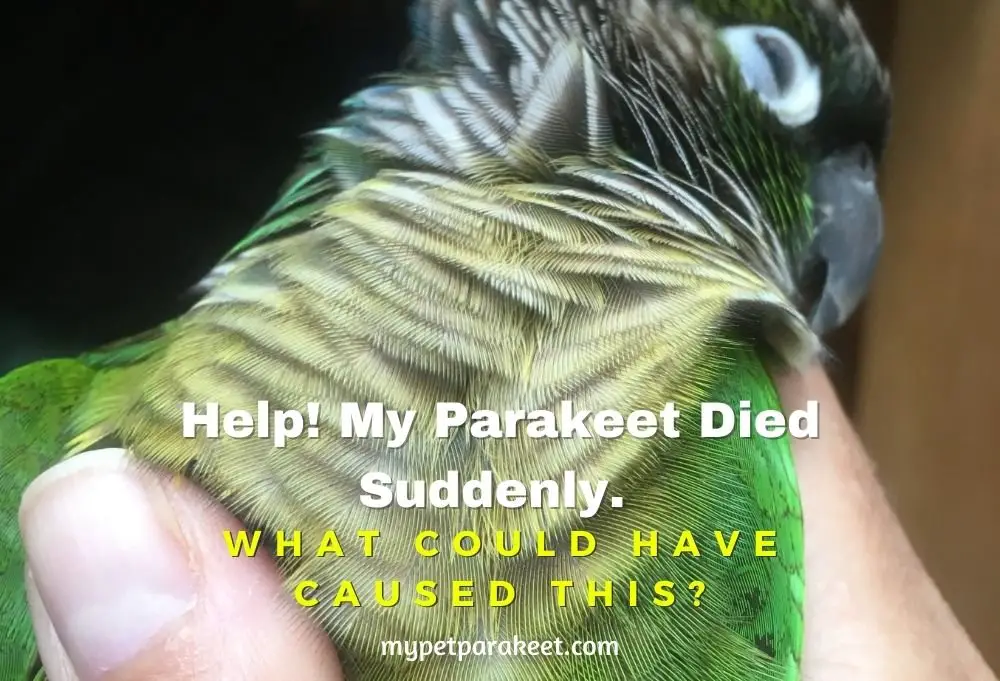A range of different mental and physical issues can cause persistent and unusual feather loss in parakeets.
Feather loss limited to just around the eyes can sure seem strange and usually poses some serious concern to bird owners. But feather loss around the eyes usually has a particular cause.
This article will go over the most common causes for a parakeet losing feathers around the eyes and how to identify, treat, and prevent these issues.
Causes Of Feather Loss Around A Parakeets Eyes
If your parakeet is losing feathers around the eyes, the problem can range from mild to serious. The key is to identify the issue so you can quickly treat it. Untreated issues around the eyes can result in long-term damage that may include vision loss or eye loss in severe cases.
Feather loss, specifically around the eyes, is a common symptom of the below problems:
- Eye infection
- Injury
- Sinus infection
- Mites
Read on, and we will discuss each of these alignments in more detail to give you vital information to help you identify the cause of your parakeet’s feather loss.
Located feather loss around the eyes is something you should contact your vet for, but learning more about the common causes, treatments, and preventions will help you collect more information and keep the problem from getting worse until you can see your local avian vet.
Eye Infection
The term conjunctivitis is the common name for an infection to the eye’s conjunctiva and can refer to many types of eye-related conditions. Feather loss around the eye is just one of many infection symptoms. Parakeets will often scratch at sore and irritated eyes, causing the feathers to fall out.
Symptoms
- Swelling
- Scratching at the eye
- Discharge around the eyes/watery eyes
- Bad smell coming from parakeets head/eyes (of the discharge)
- Sensitivity to light
- Crusty eyes
- Closing of the eye
Treatment
The treatment for the cause will likely include antibiotics from the vet. For eye-related issues, this antibiotic is usually topical and applied to the eye. Ensure you are capable and confident in restraint techniques for these treatments.
Saline washes will also help to control bacteria around an eye infection. You can do this at home before seeing a vet to help balance the pH of the eye. Saline washes should be done between topical treatments to the eyes to prevent any build-up of the medicinal product used.
Make your own saline solution at home by dissolving one teaspoon of salt into 1 cup of warm water. Cool the solution before use.
Causes
Eye infections are usually a secondary infection from a primary cause. So finding and addressing the cause of the infection should be your main goal.
The causes for an eye infection can have a wide range but some of the most common include:
- Poor hygiene in the environment
- Vitamin A deficiency
- Trauma to the eye
- Foreign body in the eye
- Viral infection from another bird
Injury

An injury to the eye region will likely cause feather loss. The impact of trauma or irritable scratching may be to blame.
Some injuries will be very obvious, but subdermal or skeletal injuries can be less noticeable.
Symptoms
- Bleeding
- Wounds
- Itching (may use feet to scratch or rub the eye against furniture in the cage)
- Discharge
- Swelling
- Bruising
Treatment
A saline wash, as outlined above, can also make an excellent first port of call for a potential injury. If there is a wound, a salt washout may be uncomfortable for your parakeet but helps limit any bacterial growth and any possible infection arising from the injury.
Injury to the eye itself will result in your vet prescribing anti-inflammatory and anti-bacterial medicines to administer to the eye. Severe damage may result in vision loss.
Injury to the area around the eye will need close monitoring for any signs of head trauma.
Causes
Injury can happen quickly to anyone or any pet! Think about how often we stub our toes or get a scratch.
Causes for an eye injury usually stem down to:
- Inappropriate furnishing in the cage
- Encountering something dangerous out of the cage
- Aggression in the flock
Ensure everything in your parakeet’s enclosure is safe and parrot-proof. When letting your parakeet out for any exploration time, monitor them closely to avoid them getting themselves into trouble. Injuries can happen quickly and are sometimes unavoidable, but parrot-proof your home the best you can.
Sinus Infection

The facial structure of most skulls includes a nasal/sinus cavity that has eyes, ears, nose and mouth all connected – this includes bird skulls! Your parakeet may have lost feathers around the eyes if they are having sinus issues.
A sinus infection will cause irritation and itchiness to the eye.
Symptoms
- Discharge from eyes and/or nares
- Sneezing
- Sunken eyes
- Proptosis (bulging eyes)
- Crusted feathers around eyes and/nares
- Tail bobbing
- Lethary
Treatment
A sinus infection may kill a parakeet if not treated properly – if a sinus infection is suspected, see a vet immediately!
Your vet will likely administer antibiotics to shift the infection and may even give your parakeet an intramuscular vitamin A injection.
At home, you should include the vitamin A you offer in your parakeet’s diet – leafy green vegetables are great for this, as well as orange.
Causes
- Vitamin a deficiency – vitamin A is vital for immunity and building the linings of respiratory systems.
- Bacterial infection – respiring bacteria in the air can cause bacterial growth within the sinus.’
- Poor air quality – excess dust, mould spores, and high humidity can contribute to parrots’ sinus infections.
Mites
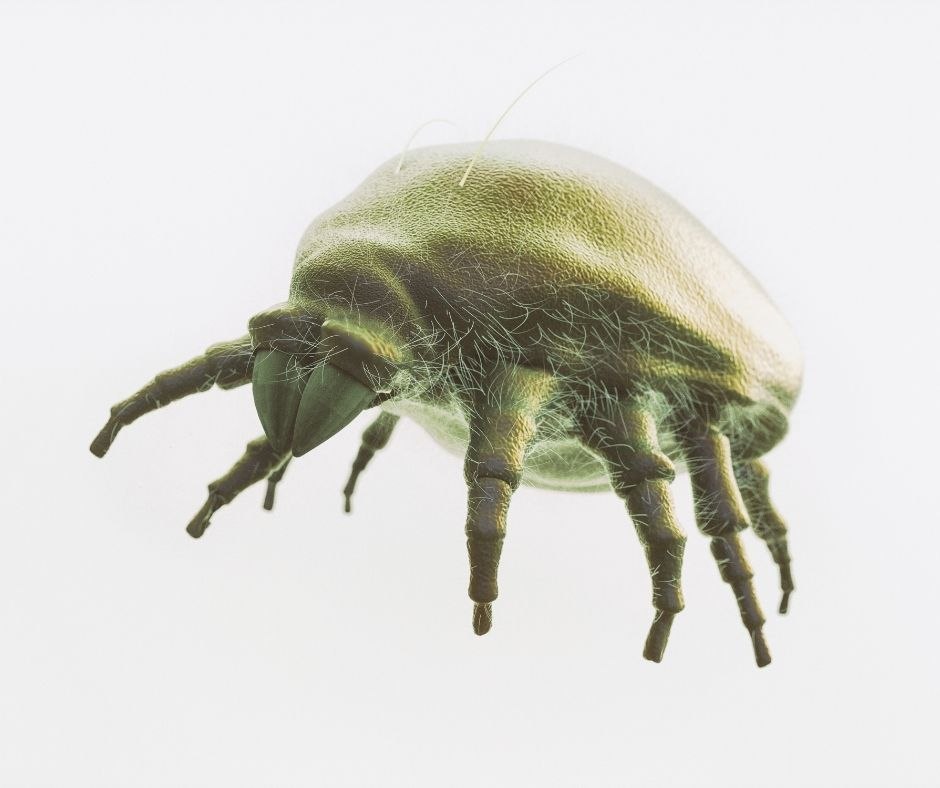
Mites can occur at any place on your parakeet’s skin, but they often like to congregate in sensitive areas with light and thin feathers. You may see more mites occurring in areas such as under the wings, in joints, or around the eyes and nares.
The skin around the eyes is soft and vulnerable and also irresistible to external parasites. The parasites can cause the feathers to fall out themselves or cause itching that encourages your parakeet to scratch at the eye feathers.
Symptoms
- Scratching at the eye
- Excessive preening
- Flaking
- Visible mites – check other spots around the body, not just the eyes.
Treatment
Treatment for mites should be done so with advice from your avian vet. It is usually a topical parasite treatment such as avimec, a brand of ivomec designed for birds.
Any other birds that live with your parakeet should also be treated as mites are highly transferable.
You should also treat the cage, nestboxes, cage furniture, and any equipment you use to care for your parakeets as stray mites may harbor away in these areas.
If deep cleaning your cage for mites, ensure you use a cleaning product safe for birds to respire or move them somewhere else to let, the cage air for a few days.
Read up more on mite treatment here.
Causes
Mites move by physical transfers to reach your bird’s skin. The easiest way to get them is bird-to-bird contact as they can move quickly between individuals.
Mites can also come in through food and mainly come in on grains and seeds. To reduce this risk, you can freeze your parakeet’s food for a few days to kill any stowaway mites before thawing and feeding out.
Recap: Feather Loss Around Parakeets Eyes
Feather loss can also be chalked down to your parakeet molting, but this should not result in specific loss around just the eyes.
Check elsewhere on your bird for other signs of molting and continue watching it closely to be sure.
You may run the risk of calling it molting when reality, there may be something else going on.
The range of issues that may be causing your parakeet to lose feathers around its eyes is quite vast and differing.
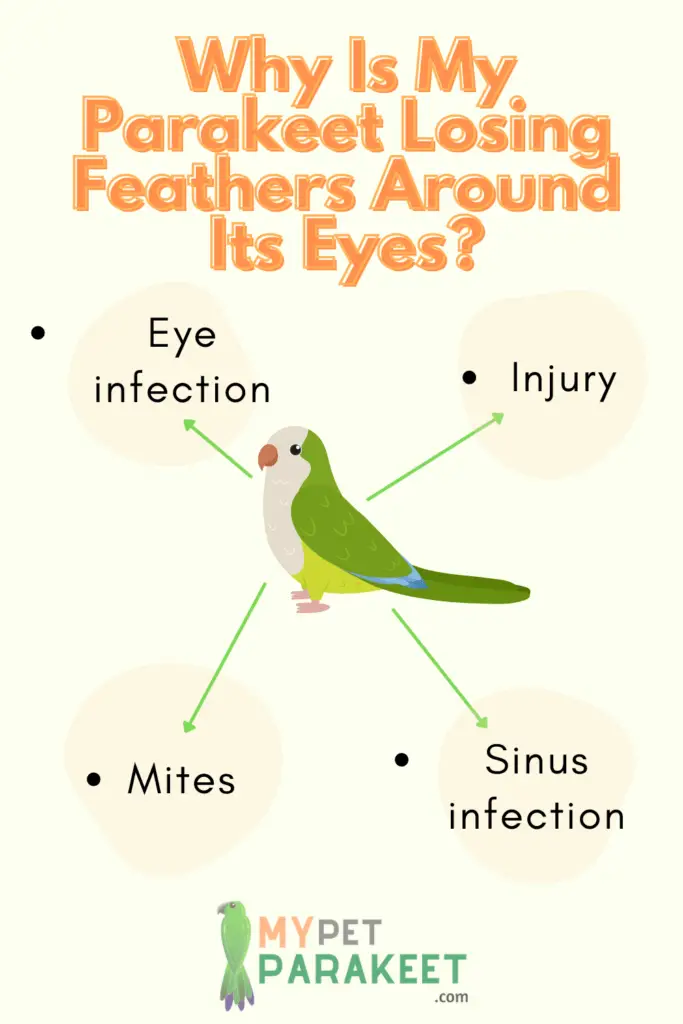
Monitor your bird closely for other symptoms and take cues from their behavior and environment to help you identify the root cause of the problem.
You should not avoid seeing an experienced avian vet if you are at all concerned, as serious issues can arise quickly if eye problems are left untreated.

